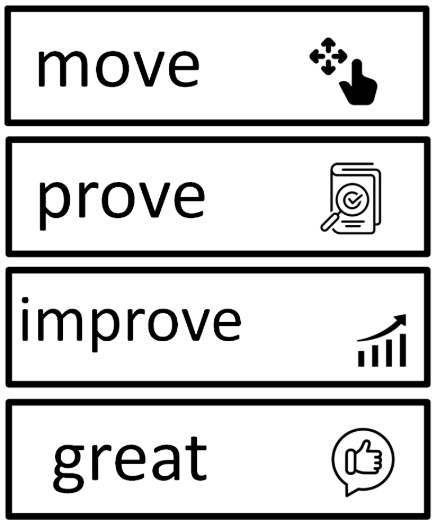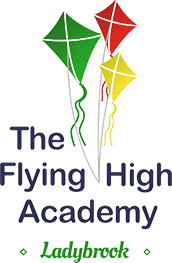Home Learning
Reading at Home
Your child will come home with a reading book that is either changed weekly or when they come to the end of the book.
To help support your child’s reading progress, we kindly ask that you read with your child every day to build a strong, positive reading habit. Research, including the work of Professor Teresa Cremin, highlights that daily reading fosters a love of books, develops language and comprehension skills, and strengthens children’s confidence as readers.
Reading every day doesn’t just help your child make progress in school — it builds the strong foundations needed for success later in life. Regular reading improves vocabulary, imagination, and critical thinking skills, all of which support future learning and even career opportunities. Just 10 minutes of shared reading a day can help your child develop into a confident, enthusiastic, and skilled reader, setting them up for a lifelong love of reading and learning.
Boom Reader
We would love to hear how your child is getting on with their reading when at home. We use an online reading diary called 'Boom Reader'. This allows us to have a shared space, between school and home, that shows how your child is progressing with their reading. You can add comments, page numbers and any words they may stumble on.
The positives of having an online reading diary are:

If you need further support on how to use Boom Reader, please watch the following video:
If you need help on how to access Boom Reader, please dojo your child's class teacher or Mrs Grey (Our Reading Champion).
Spelling
At FHAL, we want every child to feel confident and positive about spelling. We recognise that research shows traditional weekly, high-stakes spelling tests can create unnecessary stress and don’t always help children retain what they’ve learnt. However, in Year 6, the children will complete a high-stakes spelling test as part of their SATs assessments in May. Therefore, we progress on to a higher stakes, weekly spelling test through the school year to ensure the children have the confidence to complete the assessment in May. To support this, every child has access to Spelling Shed, which allows them to practise spellings in a fun and engaging way at home and in school. We celebrate effort as much as achievement — through weekly assemblies that highlight the children who have practised the most, not just those who score highly in tests. We also run prize draws and use incentives to encourage everyone to work towards the shared goal of becoming better spellers.
In our daily spelling lessons, we focus on sounds and syllables, helping children to break down words and build a stronger understanding of spelling patterns. This calm, encouraging approach helps learning to “stick” while boosting confidence. The children practise words from the statutory Year 3/4 and Year 5/6 spelling lists, as these are essential for achieving age-related expectations and often appear in SATs papers. Each week, children will also be tested on 10 words that we have been practising together in class, alongside selected words from the 3/4 and 5/6 lists. While the statutory word lists will be sent home for practice, the weekly class spellings will not, as these will already have been explored and rehearsed in lessons. Tests take place every Friday, giving children the chance to show what they’ve learnt and celebrate their progress.
In addition, we would appreciate your support in helping your child understand and explore the new words they will be learning in their English lessons.
Every 3 weeks, at the start of each new writing unit, your child’s class teacher will share a word list on the Dojo class page. We kindly ask that you take some time to talk about these words together — saying them out loud, looking at how they are spelt, and discussing what they mean and how they can be used.
This simple support at home will give your child a head start and help them feel more confident when these words come up in their English lessons.
An example of what the word lists will look like:

Times Table Practice
We would like to remind parents of the importance of regular times tables practice at home. Developing fluency in multiplication facts greatly supports children’s mathematical understanding, accuracy and confidence.
In Year 2, children are expected to focus on the 2, 5 and 10 times tables. By Year 3, they should also learn the 3, 4 and 8 times tables. From Year 4 onwards, pupils should be able to recall all tables up to 12 × 12 and answer questions quickly and accurately. This is particularly important in Year 4, when all children complete the Multiplication Tables Check (MTC).
Strong times tables knowledge also underpins many areas of mathematics in Year 6, including fractions, division, ratio and problem solving. For this reason, regular practice at home is essential to ensure long-term success in maths.
One of the best ways to support your child is through Times Tables Rock Stars, which can be accessed with your child’s individual login. This engaging platform provides fun, targeted practice, helping children strengthen gaps and build automatic recall of multiplication facts.
CGP
In Year 6, we give children more opportunities to grow in confidence and independence through home learning. We give them responsibilities that help them feel proud of their achievements and ready to take the next steps in their learning journey.
We give children the chance to practise important skills such as organisation, problem-solving, and making choices about their own learning. By supporting them in this way, we give them the tools they need to feel prepared and excited for secondary school.
Each child will receive a SPaG, Reading and Maths CGP workbook at the beginning of the year. They are asked to complete one piece of work, from each book, each week. Homework pages will be given each Friday and children will have one week to complete them. The answers can be found in the back of each book to support parents/carers with helping their children complete their homework.

